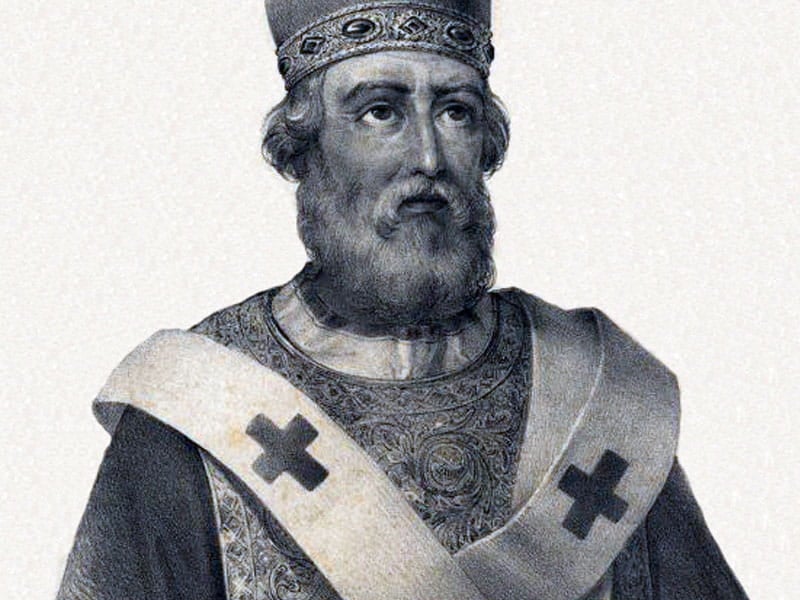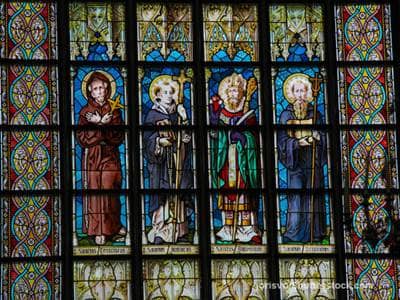St. Damasus I (305?-384)

To his secretary St. Jerome, Damasus was “an incomparable person, learned in the Scriptures, a virgin doctor of the virgin Church, who loved chastity and heard its praises with pleasure.”
Damasus seldom heard such unrestrained praise. Internal political struggles, doctrinal heresies, uneasy relations with his fellow bishops and those of the Eastern Church marred the peace of his pontificate.
The son of a Roman priest, possibly of Spanish extraction, Damasus started as a deacon in his father’s church, and served as a priest in what later became the basilica of San Lorenzo in Rome. He served Pope Liberius (352-366) and followed him into exile.
When Liberius died, Damasus was elected bishop of Rome; but a minority elected and consecrated another deacon, Ursinus, as pope. The controversy between Damasus and the antipope resulted in violent battles in two basilicas, scandalizing the bishops of Italy. At the synod Damasus called on the occasion of his birthday, he asked them to approve his actions. The bishops’ reply was curt: “We assembled for a birthday, not to condemn a man unheard.” Supporters of the antipope even managed to get Damasus accused of a grave crime—probably sexual—as late as A.D. 378. He had to clear himself before both a civil court and a Church synod.
As pope his lifestyle was simple in contrast to other ecclesiastics of Rome, and he was fierce in his denunciation of Arianism and other heresies. A misunderstanding of the Trinitarian terminology used by Rome threatened amicable relations with the Eastern Church, and Damasus was only moderately successful in dealing with the situation.
During his pontificate Christianity was declared the official religion of the Roman state (380), and Latin became the principal liturgical language as part of the pope’s reforms. His encouragement of St. Jerome’s biblical studies led to the Vulgate, the Latin translation of Scripture which the Council of Trent (12 centuries later) declared to be “authentic in public readings, disputations, preachings.”
-
Blessed Emmanuel Ruiz and Companions (1804-1860)
-
St. Oliver Plunkett (1629-1681)
-
St. Adrian of Canterbury (d. 710)
-
Our Lady of Mount Carmel
-
St. John Francis Regis (1597-1640)
-
St. Bonaventure (1221-1274)
-
St. Adalbert of Prague (956-97)
-
Assumption of Mary
-
St. Anthony of Padua (1195-1231)
-
St. Agnes (d. 258?)


